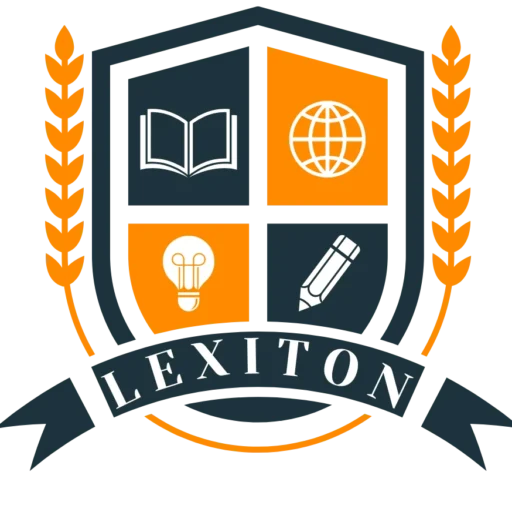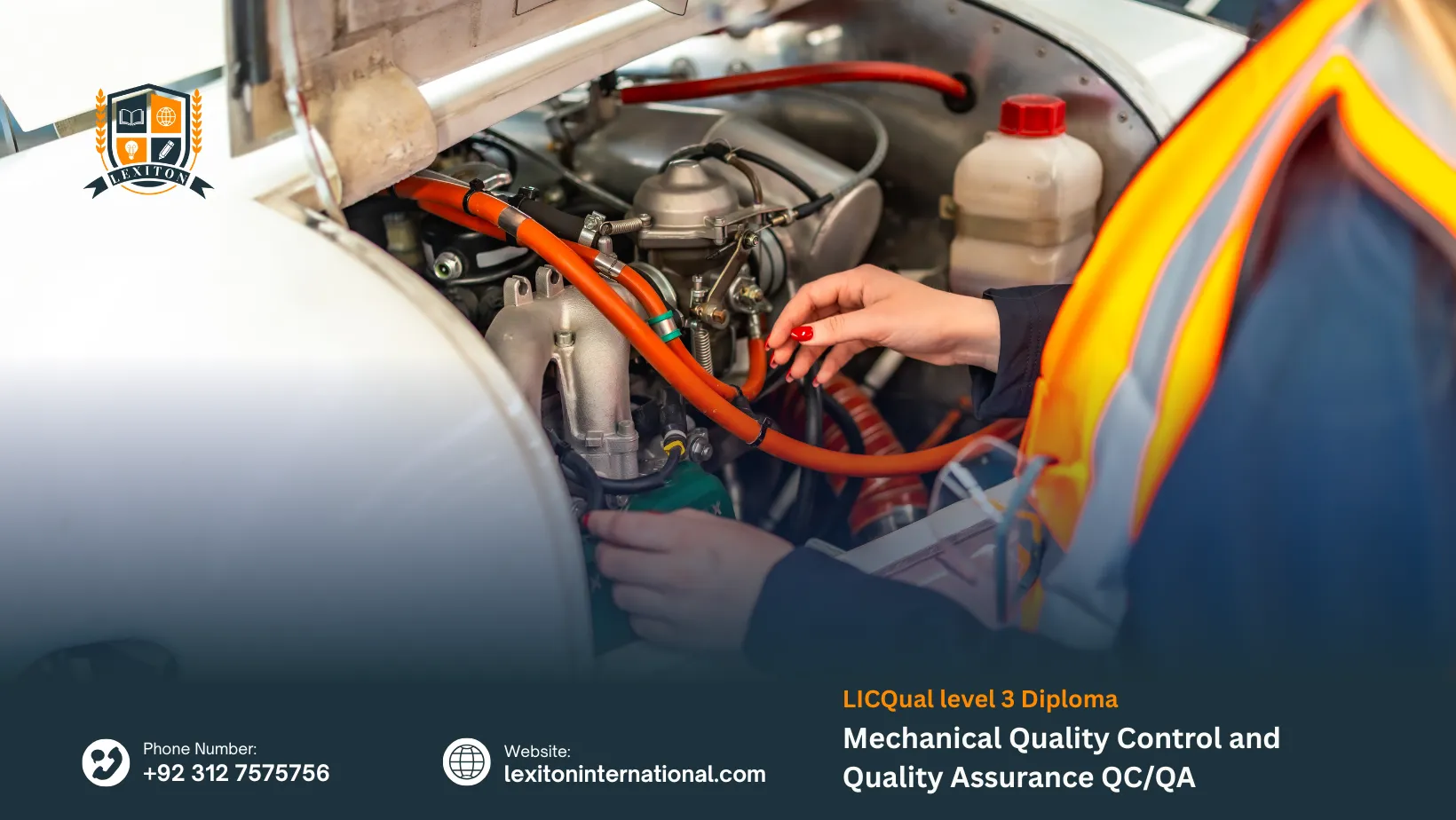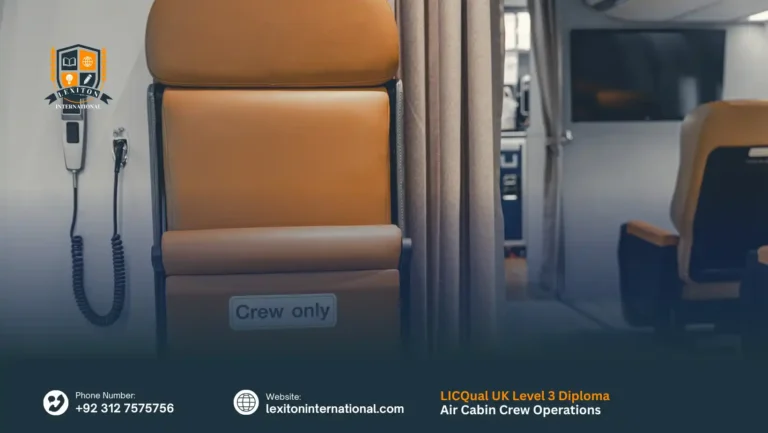The LICQual Level 3 Diploma in Mechanical Quality Control and Quality Assurance (QC/QA) is an advanced qualification designed to prepare learners for technical and managerial roles in quality systems within the engineering sector. This diploma provides a comprehensive understanding of the methodologies, standards, and tools essential for ensuring mechanical integrity, product reliability, and process efficiency. Learners gain practical insights into quality management frameworks, inspection techniques, and defect prevention strategies used in modern mechanical industries.
The course covers a wide range of specialized topics, including mechanical inspection procedures, quality documentation, non-destructive testing (NDT), calibration systems, and international standards such as ISO 9001. Through a blend of theoretical knowledge and practical case studies, learners develop the competence to plan, execute, and evaluate quality assurance and control programs across diverse mechanical operations. Emphasis is placed on understanding compliance requirements, risk management, and continuous improvement principles to meet both client and regulatory expectations.
Graduates of this qualification are equipped to perform effectively as Mechanical QC Inspectors, QA Engineers, or Quality Supervisors within manufacturing, construction, oil and gas, and industrial production environments. The diploma not only enhances technical expertise but also strengthens decision-making, analytical, and communication skills necessary for leadership in quality-focused roles. By completing this program, learners will be well-positioned to contribute to organizational excellence and pursue further professional advancement in quality engineering and management disciplines.
To get the most benefit from the LICQual Level 3 Diploma in Mechanical Quality Control and Quality Assurance (QC/QA), learners are expected to meet certain academic and professional entry requirements. These criteria ensure that participants have the appropriate background and readiness to succeed in this specialized qualification.
- Age Requirement: Learners should typically be 18 years or above to enrol in this diploma, ensuring they possess the maturity and understanding required for technical and professional studies.
- Educational Background: A Level 2 qualification or equivalent in mechanical engineering or a related discipline is recommended. Applicants with foundational knowledge in mechanical systems, manufacturing processes, or quality fundamentals are best suited for this program.
- Relevant Industry Experience: Candidates with prior experience in mechanical maintenance, inspection, fabrication, or production quality control are encouraged to apply. Individuals without formal qualifications but with significant practical experience may also be considered.
- English Language Proficiency: International learners should have sufficient English language skills to comprehend mechanical quality standards, technical documentation, and inspection procedures effectively.
- Career Motivation: Applicants are expected to demonstrate a genuine interest in pursuing a career in mechanical quality assurance, inspection, or quality control within engineering, manufacturing, or industrial environments.
Mandatory Units
This qualification, the LICQual level 3 Diploma in Mechanical Quality Control and Quality Assurance QC/QA, consists of 6 mandatory units.
By the end of the course, learners will be able to:
Mechanical Inspection and Quality Control Procedures
- Understand the principles and methodologies of mechanical inspection.
- Identify inspection stages, from raw material to final product evaluation.
- Apply mechanical quality control techniques to detect and prevent defects.
- Interpret inspection reports, specifications, and acceptance criteria accurately.
- Demonstrate the ability to use inspection tools and equipment safely and effectively.
Material Testing and Non-Destructive Examination (NDE)
- Explain the significance of destructive and non-destructive testing in mechanical QA/QC.
- Describe key NDE methods such as ultrasonic, radiographic, magnetic particle, and dye penetrant testing.
- Evaluate test results to determine material integrity and conformance to standards.
- Apply safety and regulatory procedures during material testing operations.
- Document and communicate test findings following quality system requirements.
Quality Documentation and Reporting Systems
- Understand the structure and function of quality documentation in mechanical processes.
- Prepare and maintain inspection reports, calibration records, and quality logs.
- Apply documentation standards in compliance with ISO and project requirements.
- Identify the role of traceability and record retention in quality assurance.
- Develop the ability to analyze and communicate quality data effectively.
Calibration and Measurement Standards
- Explain the importance of calibration and measurement accuracy in mechanical inspection.
- Identify types of measuring instruments and their calibration requirements.
- Perform calibration checks following standard procedures.
- Maintain calibration records in accordance with quality system protocols.
- Apply metrology principles to ensure reliability of inspection results.
ISO 9001 and Quality Management Implementation
- Understand the structure, purpose, and benefits of ISO 9001 standards.
- Identify key quality management system (QMS) elements and documentation requirements.
- Apply QMS principles to mechanical manufacturing and inspection operations.
- Evaluate compliance and implement corrective and preventive actions.
- Contribute to internal audits and continuous quality improvement processes.
Unit 6: Continuous Improvement and Risk Management
- Understand the concepts of continuous improvement (Kaizen) and their role in quality enhancement.
- Identify and assess risks affecting mechanical product quality and reliability.
- Apply root cause analysis and problem-solving tools to quality issues.
- Develop improvement plans using PDCA (Plan-Do-Check-Act) methodology.
- Promote a proactive quality culture focused on performance and safety.
The LICQual Level 3 Diploma in Mechanical Quality Control and Quality Assurance (QC/QA) is designed for individuals seeking to develop professional skills in inspection, testing, and quality management within the mechanical and industrial sectors. It is particularly suited for those who want to advance their careers in technical and supervisory quality roles.
1. Industry Professionals Seeking Career Growth
- Individuals currently employed in mechanical, production, or manufacturing environments.
- Technicians, inspectors, or maintenance personnel aiming to move into QA/QC roles.
- Professionals aspiring to advance into supervisory or quality management positions.
2. Engineering Graduates and Diploma Holders
- Learners with academic backgrounds in mechanical engineering or related disciplines.
- Graduates who want to specialize in mechanical quality systems and assurance techniques.
- Those seeking practical, industry-relevant training aligned with international standards.
3. Skilled Workers and Technicians
- Fabricators, machinists, welders, or assembly technicians wishing to transition into quality control.
- Workers seeking to strengthen their understanding of mechanical inspection and compliance processes.
- Individuals aiming to improve precision and accuracy in mechanical operations.
4. Career Changers and Entry-Level Learners
- Individuals planning to start a career in mechanical quality assurance and inspection.
- Learners interested in joining industries such as oil and gas, power generation, or heavy engineering.
- Those motivated to develop a professional pathway toward QA/QC certification and advancement.
5. Learner Characteristics
- Detail-oriented individuals with a commitment to maintaining quality and safety standards.
- Learners with problem-solving and analytical skills, capable of identifying and resolving defects.
- Professionals motivated by continuous improvement and excellence in mechanical performance.
This diploma is ideal for learners passionate about ensuring mechanical reliability, product integrity, and compliance with international standards. It equips them with the expertise and confidence to excel in mechanical QA/QC roles across diverse industrial sectors.Ideal Learners for This Course
Future Progression
Completing the LICQual Level 3 Diploma in Mechanical Quality Control and Quality Assurance (QC/QA) opens several academic and professional pathways for learners who wish to advance their qualifications and careers in the field of mechanical quality management and inspection.
1. Academic Progression
- Learners can progress to higher-level qualifications such as the LICQual Level 4 Certificate or Diploma in Mechanical Quality Assurance and Control or related Level 4 or Level 5 engineering diplomas.
- The qualification also provides a strong foundation for specialized programs in Non-Destructive Testing (NDT), Welding Inspection, or ISO Quality Management Systems (QMS).
2. Professional Progression
- Learners can apply for technical and supervisory positions such as Mechanical QC Inspector, QA/QC Engineer Assistant, Quality Technician, or Inspection Coordinator.
- With experience, professionals may advance into senior roles such as Quality Control Supervisor, QA Engineer, or Quality Manager in manufacturing, oil and gas, or heavy engineering industries.
- The diploma enhances eligibility for internationally recognized certifications from professional bodies such as ASQ (American Society for Quality), CSWIP, or ISO Lead Auditor programs.
3. Career Development Opportunities
- Graduates will gain the competence to work in diverse sectors including mechanical manufacturing, power generation, construction, and automotive engineering.
- The qualification strengthens employability by developing both technical inspection expertise and quality management skills valued globally.
- Learners who demonstrate leadership and technical excellence can progress to roles involving project quality management, process improvement, and regulatory compliance.
This diploma serves as a vital stepping stone toward advanced technical education and career advancement. It empowers learners to achieve professional recognition, assume greater responsibilities, and contribute effectively to quality-driven operations across mechanical and industrial domains.
Curious About This Course?







